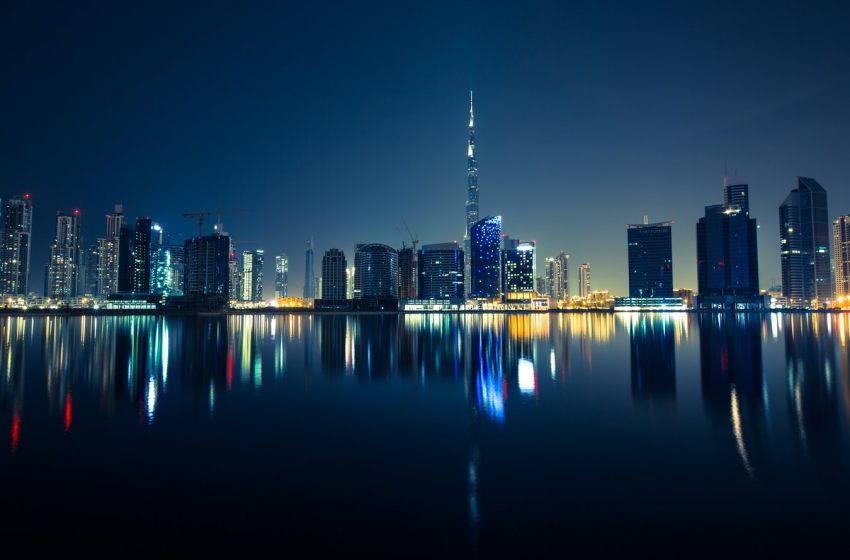
Sky Is The Limit For The UAE’s Real Estate Sector
By Tariq Qaqish
No one could have predicted, two years following the pandemic-caused shut down, that the real estate market would bounce back against all expectations. Many have argued that the pandemic has changed the real estate market forever. So, what happened?
For the UAE and other neighboring countries like Saudi Arabia, the answer is simple.
However, let us start with the big picture by looking at this globally. There are obvious factors that have increased real estate prices following the (V) shape recovery in most economies, specially the US. Fundamentally low to negative real interest rates have created a massive increase in asset prices globally with no exception to real estate.
Investors were active in acquiring assets in locations that have long term value benefiting from the record low-interest rate environment. As long as the interest rate (mortgage rate) remains low, we expect demand to continue. Besides that, in fast-moving and volatile economies where inflation is a concern, physical real estate assets are in demand.
They are considered a hedge against inflation and, in some cases, a hedge against currency risk. These assets also offered diversification since they showed solid resilience in the economic downturn. Moreover, the imbalance between demand and supply which was caused by the rapid speed of economic recovery and the supply chain challenge, due to COVID-19, has pushed raw material prices to increase significantly.
It also triggered delays in delivering the on-going projects which caused the limit in supply.
As a result, the replacement cost of building a new house is higher than before, which helped asset prices to increase exponentially.
Another major factor that affected asset prices is the availability of gigantic liquidity.
The Government’s stimulus and Fed’s printing has not only managed to stabilize the markets but has ballooned asset prices globally where inflation has skyrocketed. Even though working from home guidelines have had significant impacts on commercial real estate, yet Government’s support to tenants and landlords helped minimize the risk of defaults and established a market bottom where long term investors felt comfortable increasing their exposure to real estate and reduced panic selling.
Overconfidence
What we believe happened next is that the herd mentality took over the market. In simple terms, investors follow what they perceive other investors are doing rather than relying on their own analysis. A prime example of the effects of herd instinct is the dotcom bubble of the late 1990s and early 2000s.
An important shift that could be affecting real estate’s long-term view but would have minimal effect is that younger generations have a different mindset towards property investment. The next generation is much more interested in technology and artificial intelligence. Yet, tokenizing assets, such as real estate by utilizing blockchain will be the future.
Going back to the UAE, the story was even clearer. The government has been busy revamping all its legislations and undergoing legal reforms to enhance its position and remain the ideal hub for businesses. The number of laws that have changed since the start of the pandemic are massive and touched on all social and economic related laws.
The UAE’s official news agency WAM said: “The amendments aim to develop the legislative structure in various sectors, including investment, trade and industry, as well as commercial company, regulation and protection of industrial property, copyright, trademarks, commercial register, electronic transactions, trust services, factoring, and residency, in addition to laws related to society and personal security including as the Crime and Punishment Law, the Online Security Law, and a laws regulating the production, sale and use of narcotics and psychotropic substances,”.
- Affordability: since the start of the pandemic, various government entities reduced fees substantially to improve the UAE and to maintain its competitiveness.
- Hub for startups: established various government funds to help startups by providing the full echo system for success. It also added measures to protect personal data and stronger copyright rules.
- Allowing more competition: mainly allowing onshore full foreign ownership.
- Labour rights: major overhaul of labour law for more than 40 years.
- Normalization agreement: signed peace treaty with Israel
- Introduced REITs laws and revamp capital market seniors
- Align with international practices: changed holiday days to Saturday Sunday instead of Friday Saturday.
- Issued favorable legal system attracting more foreign investments
- Maintain safe haven status: improving political relationships with neighboring countries
- Destination for the wealthy
Looking ahead, all those changes the UAE managed to achieve during a very short period of time will ensure long-term economic sustainability. For investors, it is important to maintain long-term view for the following reasons:
a) population growth back on the table,
b) yield ratio remains attractive,
c) best in class infrastructure to continue to attract new businesses,
d) minimal currency risk (US dollar peg to remain),
e) better regional relationships,
f) favorable legal system
g) higher number of wealthy relocating to the UAE.













